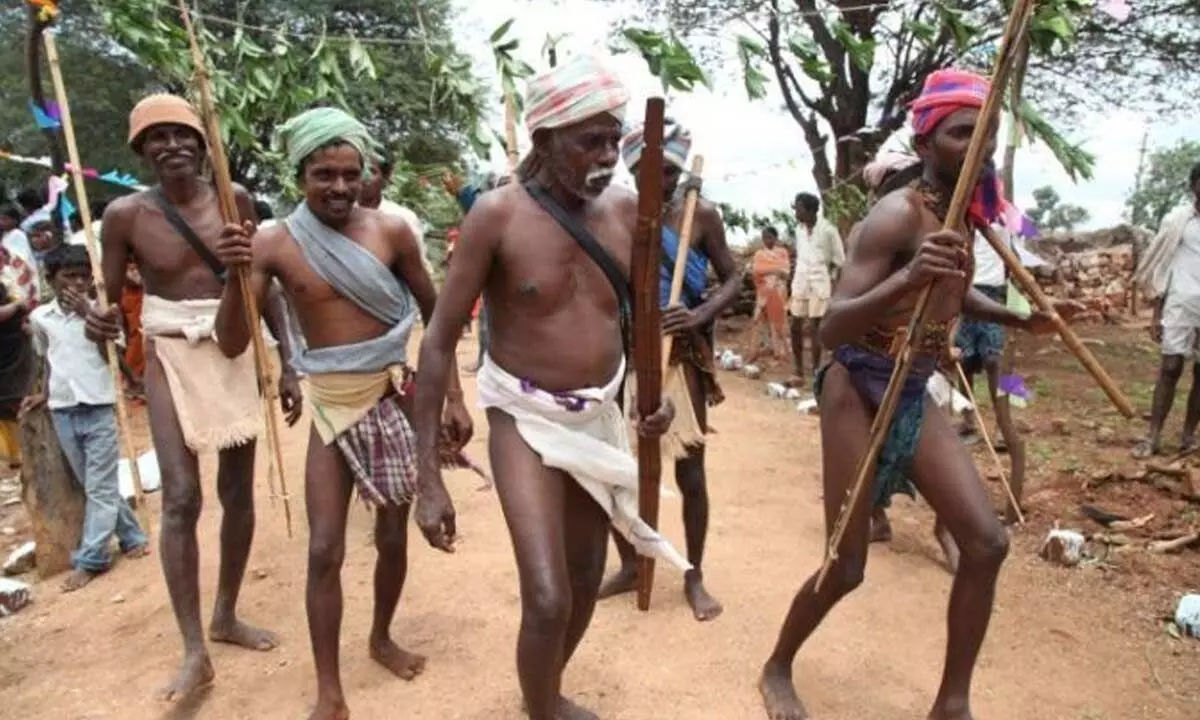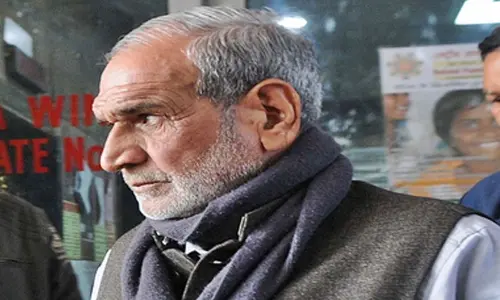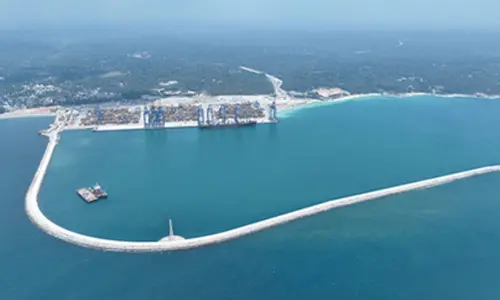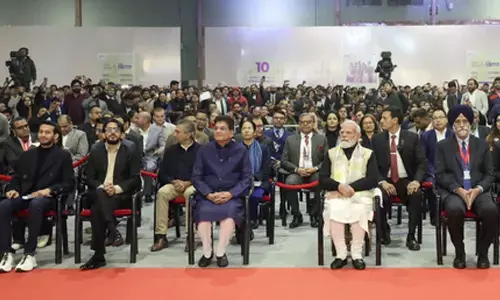Needed: Tribal development manifesto

Today, the union government is gearing up momentum for all-round development of the country in an inclusive manner.
Today, the union government is gearing up momentum for all-round development of the country in an inclusive manner. The emphasis is on inclusive growth and removal of hunger, poverty, illiteracy, malnutrition, etc, by 2047. When these avowed objectives are providing thrust to development, there are forces of market which are also impinging on the economic well-being of the country.
Today, the role played by big industrialist groups in creating employment is not to be forgotten. When some of them are expanding their enterprises overseas, their choice is usually on native Indians to lead their show. So more and more youth are getting opportunities to display their wares abroad and attract the attention of global companies for employment. This roadmap is certainly most attractive and those who get the right encouragement and financial support to pursue higher studies in Ivy League institutions take this up. They become icons like Satya Nadella and Sundar Pichai for the Amrit Kaal period.
Schedule Tribes constitute about 8% of the country‘s population. There are over 500 tribes as notified under the Article 342 of the Constitution of India. Odisha is home to the largest number of tribal communities. In our state of Andhra Pradesh, the tribal population is about 6.59% of population numbering nearly 60 lakh belonging to 33 different groups. This is the largest concentration of tribal concentration in southern India. After the state was formed in 1956, there was a progressive legislation called ‘Scheduled Areas Land Transfer Regulations,’ made in 1959, to protect the land held by the tribals. By 1978, registration of sale transactions in favour of non-tribals was prohibited by an amendment to the above Regulation 1 of 1959. By 1975-76, ST Sub-Plan was introduced by Indira Gandhi.
When we draw the agenda for Amrut Kaal period, some challenges are obviously visible on the ground. In touching upon some of these challenges, we need to recognise the dynamics of legal pronouncements that have been made by the apex court in our country. The larger demands of the developed society are often juxtaposed with the developing tribal milieu. One can see the need for balancing the priorities carefully and in a calibrated manner. One can suggest that there is every need to impose ‘reasonable restrictions’ to these arguments for achieving the avowed goals of equality and freedom, as enshrined in Chapter 3 of our Constitution. The urge to usher in a remarkable development in tribal areas could prompt the executive to overstep and indulge in an overdrive of regulations.
A case in point is the issue of reservation of teacher posts in the scheduled areas of Andhra Pradesh. From a literacy level of 7% in 70s, by dint of determined legislation and spirited executive implementation, the literacy levels are today nearly 46%. The teachers who lent their services were both tribal and non-tribal in the higher classes in the tribal institutions. The orders of government in tribal welfare department issued through GOMs dated 10.01.2000 were held to be constitutionally invalid by a five-member bench of Supreme Court in 2020.
The principle of equality and the ceiling of 50% for reservation were the grounds besides other principles cited in that 152 page order of the apex court. Tribal organisations, NGOs and several people who have been watching affairs in tribal areas with affection are all concerned over this judgement. Their fears are if the doors are open to bring non-tribals in hordes, it may adversely affect education as well as social life in tribal areas. The State government needs to see how the cap of 50% of reservations does not adversely affect tribal habitat. The implications from this judgement need to be carefully analysed and due care must be taken in a proactive manner by the democratically elected government of three political parties. It is said that three tribal-dominated states, namely, Odisha, Chhattisgarh and Jharkhand, are the most productive mineral bearing states. It is known that of the top 50 mineral producing districts in the country, almost half are tribal. There are recorded stories of how adivasis lose access to their precious lands, forests and livelihoods due to mining activities.
It is also noted that loss of productive assets and income sources contributes to impoverishment of tribal community. This economic activity is considered risky and inimical to tribal well-being. Disturbances in Gadchiroli and Koraput districts are linked to this intense mining activity. Often, there is no perceptible benefit accruing to tribal community from mining. Mention of ‘royalty development dividend fund for tribals‘ by senior journalist Jwala Narsimha Rao is a good option to choose.
In the wake of the recent Supreme Court judgement, the right of state governments to levy a retrospective tax may in fact accelerate economic activity in scheduled areas. From past experience, fears of violent left inspired movements should not be allowed to spring as a consequence to growing demands of the state budgetary resources.
There are many other issues that have to be mentioned in this context of ‘Viksit Bharat’. The support going for post-metric scholarship is a serious bottleneck. Today, after so much toil and hard work the tribal students reaching college education are not able to sustain their interest. Hostel facilities are few and student-managed hostels are full of challenges. It is to be seen how the recent sanction to tribal universities provide the opportunities to these first-generation learners. Courses in these universities need a certain thrust to enable tribal children to create employment enterprises in resources-rich tribal areas than giving them begging bowls to search for employment. Huge plantations have been undertaken in the last three decades. Food processing is a key to unlock the huge potential in tribal areas.
The National Commission for Scheduled Tribes (NCST) made recommendations for the ST population in AP, especially in Araku area, in 2019. Health and education are the areas where the august body found huge gaps. NCST reported that woman were suffering from sickle cell anaemia and of them 80% were from Valmiki community. Sickle cell anaemia is a genetic blood disorder. It was also reported by NCST that more than thousand habitations had no road connectivity. Huge tracts of forest land that were transferred to tribals under Forest Rights Act of 2006 need special attention for development. Coffee plantations in Araku area are now globally known thanks to the marketing efforts of the state government led by N Chandrababu Naidu.
The agenda for change in tribal area demands a calibrated approach. Tribal development manifesto can be evolved with meticulous planning and conscientious civil service interaction with tribal elders.
The alarm bells rung by the Samatha judgement of Supreme Court need to chime in the ears of the state machinery. Tribal habitats cannot tolerate incursions of outsiders. Responsibility cast on the state government to protect that ecosystem cannot be exaggerated. Land transfer regulations cannot be thrown to winds. ITDA administration begs attention of the state government, where for smaller districts, Collectors can be ex-officio project officers.














